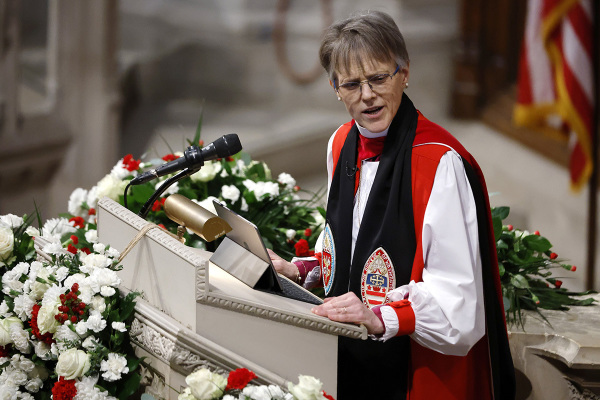The Myth of Overpopulation
Perhaps one of the most persistent and pervasive myths that have shaped the thinking of many people and, subsequently, public policy is the myth that the world’s population is spiraling out of control and that it will ultimately lead to catastrophic shortages of the essential resources necessary to sustain life.
This whole concept of “overpopulation” can be traced to Thomas Malthus, the British scholar and Anglican clergyman (albeit a very misguided one) who, without any specific knowledge other than his own speculations, predicted in 1789 that the planet’s rapid increase in population would soon outstrip the planet’s ability to produce food, resulting in massive worldwide starvation. Malthus’s predicted famine never materialized, of course; he could not have predicted the industrial revolution or the enormous impact subsequent technological innovations would have on our ability to produce food. Recall that today our federal government actually pays farmers not to grow crops due to the abundance of food produced on considerably less farmland than existed just a century ago.
Even the United Nations, historically a rabid advocate of population control, has conceded that the world’s current infrastructure is capable of supporting a worldwide population of more than 9 billion people. Furthermore, according to the most recent estimates, the planet’s population will most likely continue to climb from its current level until 2050, when it will peak at 9 billion; other predictions have the world’s population peaking at 7.5 billion in 2040. In either case, global population levels will begin a sharp decline sometime during the middle of the twenty-first century. Present fertility rates actually indicate a massive underpopulation crisis is coming, particularly among Western nations.
The question of overpopulation is not merely a topic for conversation; it is a burning matter of policy and action at the local, national, and international levels. Our national government is actually committed by law and by international agreement to reducing the worldwide rate of population growth.
Government officials, such as former Assistant Secretary of State for Global Affairs in the Clinton administration, Timothy Wirth, insist that this effort must also apply to the population of the United States. Wirth, as you may recall, was at the center of controversy when the Clinton administration decided to deport 13 Chinese women who sought asylum in the United States to avoid forced abortion under communist China’s notorious one-child policy. By offering asylum to these women, Wirth explained, “we could potentially open ourselves up to just about everybody in the world saying ‘I don't want to plan my family, therefore I deserve political asylum.’” Apparently, Wirth believes government-forced abortions and sterilization constitutes “family planning.”
Today, there are governments that compel their citizens to undergo sterilization and abortions, often with financial help from the United Nations and U.S. government-supported private agencies such as Planned Parenthood.
Motivated in part by the overpopulation myth coupled with Darwinism, Margaret Sanger, who in 1934 was the founder of the American Birth Control League (which later became Planned Parenthood), advocated contraception and abortion as means of “negative eugenics” in order to limit the population of what she termed “the lower races.” (Positive eugenics was the form employed by the Nazis in their attempt to eradicate the Jewish people.)
For this reason Sanger opposed helping the poor. Humanitarianism and philanthropy, she wrote merely “perpetuate constantly increasing numbers of defectives, delinquents, and dependents.… These dangers are inherent in the very idea of humanitarianism and altruism, dangers which have today produced their full harvest of human waste.” This same sentiment was common to Darwin and his early advocates, who saw Christian compassion as counterproductive to “natural selection” and human evolution. Recall the original full title of Darwin’s now-famous work, On the Origin of the Species by Means of Natural Selection, or the Preservation of Favoured Races in the Struggle for Life.
Frankly, if one wants to be consistent with evolutionary theory, one is compelled to think this same way and not borrow from Christian morality and ethics, as these have no logical place in the naturalistic worldview. Darwin very clearly understood this fact.
Ironically it was Thomas Malthus’s An Essay on the Principle of Population that had a profound impact on Charles Darwin and proved instrumental in the development of his theory of evolution. Darwin attests to this in his autobiography:
In October 1838, that is, fifteen months after I had begun my systematic inquiry, I happened to read for amusement Malthus on Population, and being well prepared to appreciate the struggle for existence which everywhere goes on from long-continued observation of the habits of animals and plants, it at once struck me that under these circumstances favourable variations would tend to be preserved, and unfavourable ones to be destroyed. The results of this would be the formation of a new species. Here, then I had at last got a theory by which to work.
The myth of overpopulation first put forth by Malthus, coupled with Darwinian theories that promote propagation of the “fit” and reduction of the “unfit,” has been instrumental in legitimizing abortion, forced sterilization, government subsidized contraception, and, in the most extreme cases, eugenics as practiced by the Nazis and others. (The term eugenics-meaning “good births”-was coined by Francis Galton, a cousin of Charles Darwin. Eugenics, he believed, would encourage more children from the fit, and fewer or no children from the unfit, with the ultimate goal of engineering the evolutionary ascent of man.)
In every case these false notions undermine God’s commandment to “multiply” and further serve to undermine the intrinsic value of every human as being made in the image of God.





















